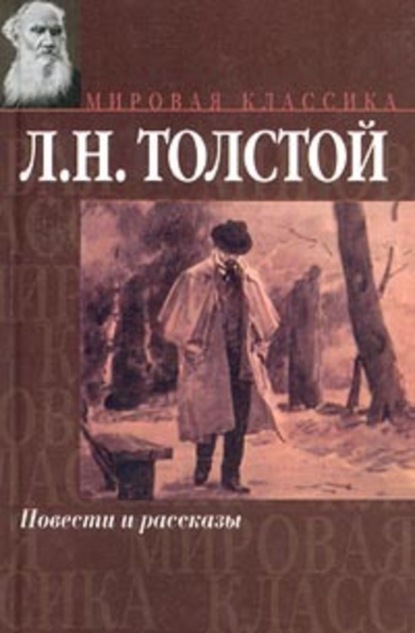
Полная версия:
Лев Николаевич Толстой Анна Каренина
- + Увеличить шрифт
- - Уменьшить шрифт

Лев Толстой
Анна Каренина
Роман «Широкого дыхания»
«Анна Каренина» поразила современников «вседневностью содержания». Необычайная свобода, раскованность повествования удивительно сочетались в этом романе с цельностью художественного взгляда автора на жизнь. Он выступал здесь как художник и мыслитель и назначение искусства видел «не в том, чтобы неоспоримо разрешить вопрос, а в том, чтобы заставить любить жизнь в бесчисленных, никогда не истощимых всех ее проявлениях» (61, 100).[1]
В 70-е годы один маститый писатель (по-видимому, Гончаров) сказал Достоевскому: «Это вещь неслыханная, это вещь первая. Кто у нас, из писателей, может поравняться с этим? А в Европе – кто представит хоть что-нибудь подобное?»[2] Ф.М. Достоевский находил в новом романе Толстого «огромную психологическую разработку души человеческой», «страшную глубину и силу» и, главное, «небывалый доселе у нас реализм художественного изображения».[3]
Время подтвердило эту высокую оценку. Из статей и книг на всех языках мира, посвященных «Анне Карениной», можно составить целую библиотеку. «Я без колебаний назвал „Анну Каренину“ величайшим социальным романом во всей мировой литературе»,[4] – писал Томас Манн.
Значение романа Толстого состоит не в эстетической ценности отдельных картин, а в художественной завершенности целого.
1«Войну и мир» Толстой называл книгой о прошлом. В начале 1865 года он просил редактора журнала «Русский вестник» М.Н. Каткова в оглавлении и даже в объявлении не называть его сочинение романом: «…для меня это очень важно, и потому очень прошу вас об этом» (61, 67). Толстой мог бы обосновать свое определение жанра («книга») ссылкой на Гегеля, которого он внимательно перечитывал в годы работы над «Войной и миром». Гегель называл книгой эпические произведения, связанные с «целостным миром» определенного народа и определенной эпохи. Книга, или «самобытная эпопея», дает картину национального самосознания «в нравственных устоях семейной жизни, в общественных условиях состояния войны и мира (курсив наш. – Э.Б.), в его потребностях, искусствах, обычаях, интересах…».[5]
«Анну Каренину» Толстой называл романом из современной жизни. В 1873 году, только еще начиная работу, он говорил Н.Н. Страхову: «…роман этот – именно роман (курсив наш. – Э.Б.), первый в моей жизни, очень взял меня за душу, и я им увлечен весь» (62, 25).
Эпоха Отечественной войны позволила Толстому изобразить в «Войне и мире» жизнь русского народа великой эпохи как «целостный мир», прекрасный и возвышенный. «Я художник, – пишет Толстой, размышляя над событиями 1812 года, – и вся жизнь моя проходит в том, чтобы искать красоту» (15, 241). Общественный подъем 60-х годов, когда в России было уничтожено рабство крестьян, наполнял и автора «Войны и мира» чувством духовной бодрости и веры в будущее. В 70-е же годы, в эпоху глубокого социального кризиса, когда написана «Анна Каренина», мироощущение Толстого было иным. «Все врознь» – так определил сущность пореформенной эпохи Ф.М. Достоевский. Толстой видел перед собой «раздробленный мир», лишенный нравственного единства. «Красоты нет, – жаловался он, – и нет руководителя в хаосе добра и зла» (62, 25).
Если в «Войне и мире» преобладает нравственная целостность и красота, или поэзия, то для «Анны Карениной» становится характерным раздробленность и хаос, или проза. После «Войны и мира», с ее «всеобщим содержанием» и поэтической простотой, замысел «Анны Карениной» казался Толстому «частным», «не простым» и даже «низменным» (62, 142).
Переход от «Войны и мира» к «Анне Карениной» имеет историческое, социальное и философское обоснование. В романе, в отличие от «книги», как об этом писал Гегель, «отсутствует самобытное поэтическое состояние мира»: «роман в современном значении предполагает прозаически упорядоченную действительность».[6] Однако здесь «снова полностью выступает богатство и разнообразие интересов, состояний, характеров, жизненных отношений, широкий фон целостного мира, равно поэтическое изображение событий».[7] Круги событий в романе по сравнению с «самобытной эпопеей» ýже, но познание жизни может проникать глубже в действительность. У романа как художественной формы есть свои законы: «завязка, постоянно усложняющийся интерес и счастливая или несчастливая развязка» (13, 54). Начав с того, что «все смешалось в доме Облонских», Толстой рассказывает о разрушении дома Карениных, о смятении Левина и наконец приходит к тому, что во всей России «все переворотилось»… «Усложняющийся интерес» выводит сюжет романа за пределы «семейной истории».
В «Анне Карениной» не было великих исторических деятелей или мировых событий. Не было здесь также лирических, философских или публицистических отступлений. Но споры, вызванные романом, сразу же вышли за пределы чисто литературных интересов, «как будто дело шло о вопросе, каждому лично близком».[8] Толки о романе Толстого сливались с злободневными политическими известиями. «О выходе каждой части Карениной, – отмечал Н.Н. Страхов, – в газетах извещают так же поспешно и толкуют так же усердно, как о новой битве или новом изречении Бисмарка».[9]
«Роман очень живой, горячий и законченный, которым я очень доволен», – говорил Толстой в самом начале работы (62, 16). В последующие годы он иногда охладевал к своему роману. Но замысел «живой, горячий и законченный» вновь и вновь завладевал его воображением. А когда наконец труд многих лет был окончен, Толстой признался, что «общество, современное „Анне Карениной“, ему гораздо ближе, чем общество людей „Войны и мира“, вследствие чего ему легче было проникнуться чувствами и мыслями современников „Анны Карениной“, чем „Войны и мира“. А это имеет громадное значение при художественном изображении жизни».[10] В этом и состоит «вседневность» содержания толстовского романа «из современной жизни».
Замысел Толстого, который он вначале называл «частным», постепенно углублялся. «Я очень часто, – как бы оправдываясь, признавался Толстой, – сажусь писать одно и вдруг перехожу на более широкие дороги: сочинение разрастается».[11] И успех романа оказался громадным; его читали во всех кругах образованного общества. И вскоре выяснилось, что «Анна Каренина» была встречена с осуждением в «высших сферах». М.Н. Катков решительно отказался печатать в «Русском вестнике» эпилог романа и «опустил перед Толстым шлагбаум». Уже тогда начиналось то отчуждение от дворянского высшего круга, которое позднее, после «Воскресения», привело к осуждению Толстого и отлучению его от церкви.
М.Н. Катков, лидер реакционной журналистики 70-х годов, тонко почувствовал острую критическую мысль Толстого и стремился всеми силами нейтрализовать впечатление, произведенное на современников «Анной Карениной». Но дело уже было сделано: Толстой высказался и облегчил свою совесть. Н.С. Лесков с тревогой отмечал, что за «Анну Каренину» Толстого дружно ругают «настоящие светские люди», а за ними «тянут ту же ноту действительные статские советники».[12]
Изображение «золоченой молодежи» в лице Вронского и «сильных мира сего» в лице Каренина не могло не вызвать негодования. Сочувствие народной жизни, воплощенное в Левине и в картинах крестьянского быта, также не пробуждало восторга у «настоящих светских людей». «А небось чуют они все, – писал Толстому Фет, – что этот роман есть строгий неподкупный суд всему нашему строю жизни».[13]
2Толстой был уверен, что изменится «весь строй жизни». «Наша цивилизация… идет к своему упадку, как и древняя цивилизация»,[14] – говорил он. Это ощущение приближающихся коренных перемен в жизни дворянского общества постепенно нарастает в его творчестве по мере приближения первой русской революции. Уже в «Анне Карениной» появляются характерные черты кризисной исторической метафоры, которую Толстой повторял много раз и в своих публицистических высказываниях.
Красносельские скачки были «жестоким зрелищем». Один из офицеров упал на голову и разбился замертво – «шорох ужаса пронесся по всей публике». «Все громко выражали свое неодобрение, все повторяли сказанную кем-то фразу: „Недостает только цирка с львами“. Здесь появляется и Гладиатор – конь Махотина. Одна из зрительниц обмолвилась знаменательными словами: „Если бы я была римлянка, то не пропустила бы ни одного цирка“.
«Жестокое зрелище», напоминавшее о римских ристалищах и цирках, было устроено для развлечения двора. «Большой барьер, – пишет Толстой, – стоял перед самой царской беседкой. Государь, и весь двор, и толпы народа – все смотрели на них».
К той же метафоре относятся и упоминания о Сафо, светской львице, в кружке которой проводит свои вечера Анна, и «афинские вечера», которые посещает Вронский.
Из разрозненных подробностей в романе Толстого возникает цельная картина «современного Рима эпохи упадка цивилизации». Это отношение к современности было характерно не только для Толстого, но и для многих мыслителей и публицистов его эпохи.
«Трудно подойти близко к истории древней Римской империи без неотвязчивой мысли о возможности найти в этой истории общие черты с европейской современностью, – говорилось в 1876 году в журнале „Вестник Европы“. – Эта мысль пугает вас ввиду тех ужасающих образов, в которых олицетворилось для вас глубокое нравственное падение древнего мира».[15]
И еще одна особенность «эпохи упадка» не проходит мимо внимания Толстого: самоубийства. Газеты тех лет были наполнены сообщениями и описаниями необыкновенных происшествий в городах и на железных дорогах. «В последние годы, – отмечал Гл. Успенский, – мания самоубийства черной тучей пронеслась над всем русским обществом».[16] В романе «Анна Каренина» эта туча отбрасывает грозную тень на Анну, Вронского и Левина. Каждый из них так или иначе проходит через грань последнего отчаяния. Вронский стреляется, но неудачно. Левин прячет от себя шнурок, чтобы не свести счеты с жизнью в тайне своей библиотеки. Анна кончает жизнь на станции Обираловка под колесами товарного поезда. От жестоких зрелищ в Красном Селе до гибели на глухой железнодорожной станции – один шаг. «Самоубийцы и восклицания: „Хлеба и зрелищ!“ навели меня на мысль, – писал Н.К. Михайловский, – сопоставить наше время со временем упадка Рима».[17]
Николай Левин, объясняя своему брату Константину, что цель русской революции состоит в том, чтобы «вывести народ из рабства», сравнивает революцию с духовным движением, ознаменовавшим конец Рима: «все это разумно и имеет будущность, как христианство в первые века». Такого рода идеи были весьма характерны для революционеров-народников 70-х годов XIX века. Острая социальная критика принимала формы проповеди в духе «христианства первых веков», решительного отрицания «языческого строя жизни». «Пусть каждый поклянется в сердце своем, – писал один из активных деятелей той поры, – проповедовать братьям своим всю правду, как апостолы проповедовали».[18] Семидесятники, как отмечал другой писатель той же эпохи, были «похожи на тех исповедников, которые в первые времена христианства выходили возвещать добрую весть и так горячо верили, что умирали за свою веру».[19]
Толстой с большим вниманием относился к этим идеям. Его герой Константин Левин тоже размышляет над тем, что ему сказал брат Николай: «…разговор брата о коммунизме… заставил его задуматься. Он считал переделку экономических условий вздором, но он всегда чувствовал несправедливость своего избытка в сравнении с бедностью народа». И впоследствии, уже накануне 1905 года, беседуя с рабочими Прохоровской мануфактуры, признавая, что «нужна революция и не буржуазный строй, а социалистический», Толстой утверждал: «Все зло, о котором вы говорите, все это неизбежное последствие существующего у нас языческого строя жизни».[20]
Толстой неразрывно связан со своей эпохой, что отражается и на содержании, и на форме его излюбленных идей. Но религиозная форма толстовских идей никогда не заслоняла от современников социального смысла его творчества. Он писал «Анну Каренину» в годы глубокой переоценки ценностей. Деятели освобождения, боровшиеся против крепостного права, благородные и мужественные шестидесятники, верили в возможность и необходимость уничтожения рабства, у них были силы для борьбы и ясное сознание целей, они не задумывались над тем, как сложатся пореформенные условия, ограничиваясь расчисткой пути для европейского развития. В 70-е годы положение изменилось. Десять лет реформы показали, что крепостничество крепко укоренилось и уживается с новыми формами буржуазного стяжания. Прежней веры в пути и средства борьбы уже не было. Устои нового времени оказались непрочными. Появилась та черта общественного сознания, которую Блок метко определил как «семидесятническое недоверие и неверие».[21] Эту черту общественного сознания Толстой уловил в психологии современного человека, и она вошла в его роман как характерная примета переходного времени. «Под угрозой отчаяния» – вот одна из важнейших формул романа «Анна Каренина», изобилующего нравственными формулами. Сочувствие Толстого на стороне тех героев, которые живут в смутной тревоге и беспокойстве, которые ищут смысла событий, как смысла жизни. Он и сам тогда жил «под угрозой отчаяния».
«Все смешалось» – формула лаконичная и многозначная. Она представляет собой тематическое ядро романа и охватывает и общие закономерности эпохи, и частные обстоятельства семейного быта. Толстой в «Анне Карениной» как бы вывел художественную формулу эпохи. «У нас теперь, когда все это переворотилось и только укладывается, вопрос о том, как уложатся условия, есть единственный важный вопрос в России…» Вот общая мысль, которая определяет и сюжет, и композицию романа, а также сущность перевала русской истории – от падения крепостного права до первой русской революции.
3В романе Толстого все было современным: и общий замысел, и подробности. И все, что попадало в поле его зрения, приобретало обобщенный, почти символический характер. Например, железная дорога. Она была в те годы великим техническим новшеством, переворотившим все привычные представления о времени, пространстве и движении. Жизнь героев романа «Анна Каренина» так или иначе связана с железной дорогой. Однажды утренним поездом в Москву приехал Левин. На другой день, около полудня, из Петербурга приехала Анна Каренина. «Платформа задрожала, и, пыхая сбиваемым книзу от мороза паром, прокатился паровоз с медленно и мерно насупливающимся и растягивающимся рычагом среднего колеса…» Никто не мог теперь обойтись без железной дороги – ни светская дама из столицы, ни усадебный помещик.
Железнодорожные станции с расходящимися в разные стороны лучами стальных путей были похожи на земные звезды. Сидя на звездообразном диване в ожидании поезда, Анна Каренина с отвращением глядела на входивших и выходивших – «все они были противны ей». Какая-то всеобщая разобщенность вокзальной толпы производила на современников горькое впечатление. Вспоминалась даже «звезда Полынь» из Апокалипсиса, которая упала «на источники» и отравила воды (гл. 8, ст. 10–11).
Один из героев романа Достоевского «Идиот» называет «сеть железных дорог, распространившихся по Европе», «звездой Полынь».[22] Это звезда Вронского. Он в романе Толстого вечный странник, человек без корней в почве. «Я рожден цыганом, – говорит он, – и умру цыганом». Это один из толпы цивилизованных кочевников. В первый раз Анна Каренина увидела его на Московском вокзале. И в последний раз Кознышев встретил его там же, когда он уезжал добровольцем в Сербию. «В косой вечерней тени кулей, наваленных на платформе, Вронский в своем длинном пальто, в надвинутой шляпе, с руками в карманах, ходил, как зверь в клетке, на двадцати шагах быстро поворачиваясь». И его объяснение с Анной произошло на какой-то глухой станции во время метели. Анна отворила дверь поезда – «…метель и ветер рванулись ей навстречу и заспорили о двери». Это был удивительный спор с какой-то бездомной стихией, которая охватывает Вронского и Анну. Именно из метели и ветра возникает фигура Вронского на станции. Он заслоняет собой свет фонаря. «Она довольно долго, ничего не отвечая, вглядывалась в него и, несмотря на тень, в которой он стоял, видела, или ей казалось, что видела, и выражение его лица и глаз». «Ужас метели» казался тогда Анне Карениной «прекрасным», но уже «впереди плачевно и мрачно заревел густой свисток паровоза». «Звезда Полынь» взошла над ее судьбой.
Анна Каренина всякий раз оказывается на вокзале как бы случайно. В первый раз она села в поезд, чтобы поехать в Москву помирить своего брата Стиву Облонского с женой. И только случайная гибель сцепщика под колесами паровоза была «дурным предзнаменованием». В последний раз она приехала на станцию Обираловка, чтобы разыскать там Вронского и примириться с ним. Но уже не нашла его… Лишь «мужичок, приговаривая что-то, работал над железом». Это и была смерть Анны Карениной, когда она вдруг «почувствовала невозможность борьбы». Уже первая ее поездка, с «прекрасным ужасом метели», предвещала разрушение ее семьи. С Вронским она стала бездомной, путешественницей. Она едет в Италию, мечется между Петербургом, где остался ее сын Сережа, имением Вронского Воздвиженское, где она даже в комнате своей дочери была «как лишняя», и Москвой, где она надеялась найти разрешение своей участи. Она постепенно теряет всех и все: мужа, сына, возлюбленного, надежду, память. «Когда поезд подошел к станции, Анна вышла в толпе других пассажиров и, как от прокаженных, сторонясь от них, остановилась на платформе, стараясь вспомнить, зачем она сюда приехала и что намерена была делать…» Рельсы расходятся в разные стороны, как холодные лучи «звезды Полынь». Жизнь обирает ее, и она ничего не в силах удержать. Она потеряла не только близких, не только «точку опоры», она потеряла себя. Таков и был замысел Толстого: «…ему представился тип женщины, замужней, из высшего общества, но потерявшей себя. Он говорил, что задача его сделать эту женщину только жалкой и не виноватой…».[23]
Сама того не желая, Анна всем приносит несчастье. И Каренину, который говорит: «я убит, я разбит, я не человек больше», и Вронскому, который признается: «как человек – я развалина», и самой себе: «была ли когда-нибудь женщина так несчастна, как я», – восклицает она. И то, что она бросается поперек дороги под колеса неумолимо надвигающегося на нее вагона, тоже получило в романе символический смысл. Конечно, смысл трагедии не в самой железной дороге… Но «звезда Полынь» заключала в себе такой заряд современной поэзии, что Толстой, как поэт и романист, не мог пренебречь ее художественными возможностями.
И Каренин становится постоянным пассажиром, когда разрушилась его семья. Он ездит из Петербурга в Москву и из Москвы в Петербург как бы по делам службы, заполняя внешней суетой образовавшуюся душевную пустоту. Он ищет не деятельности, а рассеяния. Анна Каренина называла своего мужа «злой министерской машиной». Он не всегда был таким, ему не была чужда человечность. Но некоторая «машинальность» его привычек и убеждений прекрасно согласовалась с законами «звезды Полынь». Во всяком случае, и в вагоне поезда он чувствует себя одним из «сильных мира сего», столь же сильным и «регулярным», как сама эта железная дорога, которая в конце концов погубила Анну Каренину.
В жизни Стивы Облонского не было крутых переломов или катастроф, но вряд ли кто-нибудь из героев романа ощущал с такой остротой всю тяжесть «переворотившейся жизни». «Без вины виноват», – говорит о себе Облонский. «Жизнь вытесняет праздного человека», – объясняет Толстой. Облонскому ничего не остается, как обратиться к той же «звезде Полынь». Потомок древнего рода, рюрикович, он входит в круг «железнодорожных королей» и надеется получить место в обществе «взаимного баланса южно-железных дорог»… «Взаимный баланс» эпохи был не в пользу Облонского и всего уклада привычной, «наследственной» и «праздной» жизни. Когда Облонский узнал, что поезд, на котором приехала Анна, раздавил сцепщика, он в смятении побежал к месту происшествия и потом, страдая, морщась, готовый заплакать, все повторял: «Ах, Анна, если бы ты видела! Ах, какой ужас!» Сцепщик этот был простой мужик, может быть, из его разоренного владения, пустившийся искать счастья на тех же путях, что и его барин. Толстой упорно называет сцепщика мужиком. И Анна увидела его во сне, в вагоне поезда, на обратном пути в Петербург. «Мужик этот с длинною талией принялся грызть что-то в стене, старушка стала протягивать ноги во всю длину вагона и наполнила его черным облаком; потом что-то страшно заскрипело и застучало, как будто раздирали кого-то; потом красный огонь ослепил глаза, и потом все закрылось стеной. Анна почувствовала, что она провалилась…» Не поезд, а сама эпоха уносила, разлучала, подавляла и раздирала кого-то. Железная дорога у Толстого – не только подробность современной жизни, но и глубокая символическая реальность.
Левина, ворвавшегося в полушубке в купе первого класса, где удобно расположился Каренин, едва не выпроводил кондуктор. И Левин «поторопился начать умный разговор, чтобы загладить свой полушубок». Сцена эта вполне в духе 70-х годов. «Никто, отправляясь в путь, не может быть уверен, – писал обозреватель „Отечественных записок“, – что его… не высадят где-нибудь на дороге… с каждым пассажиром не только каждый начальник станции, но и каждый обер-кондуктор, даже кондуктор распоряжается, как с принадлежащей ему вещью».[24] Статья заканчивалась именно теми словами, которые сказал Каренин: «До сих пор не существует никаких правил, которые бы определяли права пассажиров».
Соль этого эпизода состоит именно в том, что «звезда Полынь» его, Левина, не принимает. Если тема Анны Карениной ярче всего воплощена в зимней метели на глухой станции, то тема Левина сливается с музыкой мощной весенней грозы, когда он вдруг ощутил присутствие нравственного закона в своем сердце и увидел живые вечные звезды над своей головой. При каждой вспышке молнии звезды исчезали, а потом, «как будто брошенные какой-то меткой рукой, опять появлялись на тех же местах».
4«Мне теперь так ясна моя мысль, – говорил Толстой в 1877 году, завершая работу над романом. – Так, в „Анне Карениной“ я люблю мысль семейную, в „Войне и мире“ любил мысль народную вследствие войны 1812 года…».[25] Конечно, и в «Войне и мире» есть «семейная хроника», и в «Анне Карениной» есть «картины народной жизни». Но для каждого романа нужна была своя, особенная любовь. «Мысль семейная» для 70-х годов XIX века особенно актуальна. «Одна из самых важных задач в этом текущем, для меня, например, – признавался Ф.М. Достоевский, – молодое поколение, и вместе с тем современная русская семья, которая, я предчувствую это, далеко не такова, как всего еще двадцать лет назад».[26]
Толстой видел несомненную связь между разрушением социальных основ современного дворянского общества, построенного на традициях наследственности и преемственности, и распадом семейных устоев. Не только семья Каренина, но и семья Облонского разрушается на глазах. Один Левин сравнивает себя с весталкой, хранительницей огня. Облонскому даже сам обычай венчания в церкви кажется нелепым: «Как это глупо, этот старый обычай кружения, „Исаия, ликуй“, в который никто не верит и который мешает счастью людей!»
«Старый обычай» был основан на идее нерасторжимости брака. Этой точки зрения придерживается в романе Каренин. Он не в состоянии найти достаточный повод для того, чтобы дать развод Анне, потому что мыслит по-старому. Вместо развода он предлагает ей прощение. И тем самым «мешает счастью»… Со своей стороны, Анна, требуя развода, мыслит по-новому. И сталкивается не только с противодействием Каренина, но и с законом, который оставался прежним, требовал «нерасторжимости». Вопрос о разводе тогда уже был поднят в обществе, как вопрос актуальный и жизненный. Это было новое веяние времени. И для современного романа оно представляло огромный сюжетный интерес. «В вопросе, поднятом в обществе о разводе, – говорилось в черновиках романа, – Алексей Александрович и официально и частно всегда был против» (20, 267). Мысль Каренина, по существу, очень близка Толстому. Поэтому легко заметить, что нередко, в особенности в сцене прощения и примирения с Вронским у постели умирающей Анны, Толстой рисует Каренина с явным сочувствием и замечает даже, что в те минуты, когда он находил в себе силы быть великодушным, он поднимался «на недосягаемую высоту». Однако Алексей Александрович терпит поражение. Брак, который он хочет удержать законом, все же распадается. Остается только внешняя сторона хорошо налаженного быта. Он признается себе, что уже «ненавидит сына», которого «должен был любить в глазах людей, уважающих его» (20, 267). Поэтому Анна имела основание сказать, что он, «как рыба в воде, плавает и наслаждается во лжи».
«Мы любим себе представлять несчастие чем-то сосредоточенным, – говорит Толстой, – фактом совершившимся, тогда как несчастие никогда не бывает событие, а несчастие есть жизнь, длинная жизнь несчастная, то есть такая жизнь, в которой осталась обстановка счастья, а счастие, смысл жизни – потеряны» (20, 370). Каренин ни в чем не был виноват перед Анной, но она не пожелала разделить с ним «счастье прощения». «Я не виновата, что Бог меня создал такою, что мне нужно любить и жить», – говорит о себе Анна. Но слово «вина» не сходит у нее с языка. «Я не виновата», – повторяет она в то время, как чувство трагической вины захватывает ее. И своему мужу она ставит в вину «все, что только могла она найти в нем нехорошего, не прощая ему ничего за ту страшную вину, которою она была перед ним виновата», – пишет Толстой.







